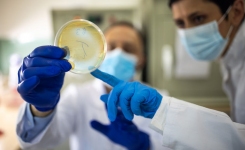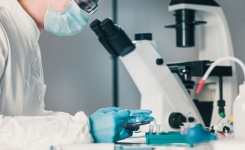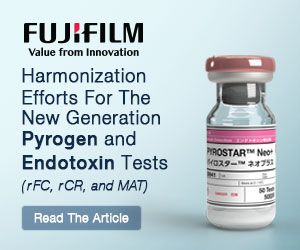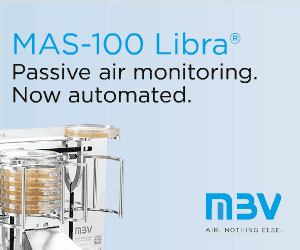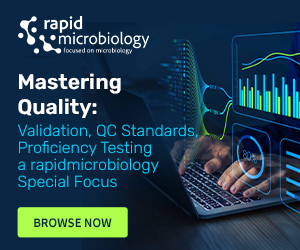On 19th September 2019, Pharmig welcomed it's members to Dublin for training. As part of Pharmig’s focus on the continuous development of professionals working in the field of microbiology in the pharma and biopharma industry, its members were given the opportunity to be trained in the validation of rapid microbiological method technology by world expert Dr Michael J Miller.
Throughout the day Dr Miller guided the seminar’s participants step-by-step in the adoption, validation and implementation of RMMs. Exhibitors of RMMs present on the day, BioMérieux, Technopath and the PMT group were also on-hand to answer any queries on their RMM products and the agreements in place between the supplier and the customer.
How regulatory authority agencies across the globe regard RMMs was a hot topic of discussion on the day. Dr Miller was asked by the audience if there is any update in sight for the USP and EP (European Pharmacopoeia) to provide specific recommendations for the validation of RMMs, as the biopharma/pharma regulatory affairs departments are hesitant to adopt them seeing as the results obtained from these technologies are not in alignment with the compendia in the markets they working in.
In response to this, Dr Miller who is an advisor to the US Pharmacopeia (USP) Microbiology Expert Committee with regard to rapid sterility testing, stated that the next phase for the advisory group is to recommend testing strategies in support for a monograph rapid sterility test chapter, USP chapter 71.1. Because this process requires a number of laboratory studies, the publication of such a chapter may take some time. In any case, once a rapid sterility test chapter is published, the end-user would only need to perform method suitability on the test samples and not perform any extensive validation work because, by definition, USP tests would have already been validated. Dr. Miller believes the industry would welcome such a chapter in the future.
In relation to the European Pharmacopeia, it was Dr Miller’s understanding for Ph. Eur. Chapter 5.1.6, that it was proposed to put back some additional case studies and examples on how to do validation. In fact, EDQM published validation protocol examples for a rapid sterility test, a quantitative method and a molecular-based microbial identification method. End users may now download this document at https://www.edqm.eu/sites/default/files/brochure-pheur-examples-validation-protocols-alternative-microbiological-methods-2018.pdf.
In order to allay concerns from the audience on the day on the high-sensitivity that some of these instruments may have Dr Miller stressed how important it is to work with the suppliers of these rapid detection instruments. Dr Miller advised anyone nervous of adopting such technologies to work with the suppliers by sending samples into the suppliers to do some proof of concept studies, including some false positive testing. By doing this, Dr Miller, emphasized, companies will be able to know which RMM is the most suitable for the desired application before beginning any steps in a validation process.
As part of the contracts arranged with suppliers of RMMs, help in validating the instruments comes automatically with the contract as testified by the exhibitors of RMMs on the day which included teams from BioMérieux, Technopath and PMT group. Apart from cost, a common reason given by these exhibitors for why are companies slow to adopt RMMs was due to the resources needed to validate and implement them, in terms of time and effort.
After a rapid method has been chosen and the cheque signed off by the site head, it is now time to assemble a team within your company of different skill sets to make up your project team. The many steps to be completed as the project team go through the manuals required; IQ, OQ and PQ and the resources it takes are unavoidable, and this seems to be a deterrent in companies beginning the process and adopting the technologies. Des Joyce, division manager for lab sciences at Technopath expounded on why, in his experience, it can feel like a marathon to complete, “The top ten pharmaceutical companies in the world are in Ireland and they adhere to EP but they will still have to go through their parent company which is based in America because this is where the central decision-making process is. There they will have their own set of criteria for carrying out validation, the type of technologies they use and how to implement them. And so this involves a large team and can take a long time to complete a stage in the process” said Des.
However this length lot of validation work doesn’t apply to all RMMs, and when Dr Miller showed the return of investment (ROI) over five years the final number made in savings shows exactly why the market of RMM is growing exponentially and is predicted to keep growing in the future.
With some conflicting guidance associated with the validation of rapid methods, especially in the area of Equivalence testing, both in USP and the EP, resulting in confusion and hesitancy in a company's in-house regulatory affairs departments and the potential of putting limited resources under pressure, it stands to reason why Dr Michael J Miller is travelling the globe consulting for these industries and why his expertise has garnered him the reputation as ‘the leading industry expert’ in this field.
About Dr. Michael J. Miller:
| Michael is an internationally recognized microbiologist and subject matter expert in pharmaceutical, biotech and medical device microbiology and the design, validation and implementation of rapid microbiological methods (RMM). He is currently the President of Microbiology Consultants, LLC and owner of rapidmicromethods.com, a website dedicated to the advancement of rapid methods. |



